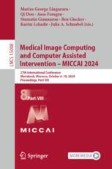Search
Search Results
-
Measuring model alignment for code clone detection using causal interpretation
Deep Neural Network-based models have demonstrated high accuracy for semantic code clone detection. However, the lack of generalization poses a...

-
An optimized hybrid deep learning model for code clone detection
Code clones in software system are identical or similar pieces of code. The code is repeatedly generated by the copy and paste program. As a result,...

-
CloneRipples: predicting change propagation between code clone instances by graph-based deep learning
Code clones are recognized as a code smell that may require additional effort for simultaneous changes of multiple clone instances during software...

-
Adaptive Prefix Filtering for Accurate Code Clone Detection in Conjunction with Meta-learning
This research project has significantly contributed to the advancement of code duplication detection by introducing a new testing method and...

-
Source Code Clone Detection Using Unsupervised Similarity Measures
Assessing similarity in source code has gained significant attention in recent years due to its importance in software engineering tasks such as...
-
Evaluating few-shot and contrastive learning methods for code clone detection
ContextCode Clone Detection (CCD) is a software engineering task that is used for plagiarism detection, code search, and code comprehension....

-
Finding Code Clone Refactoring Techniques by Mapping Clone Context
Reducing clones in source code is one of the techniques to improve the maintainability of a software system. Which refactoring technique to use...
-
Are our clone detectors good enough? An empirical study of code effects by obfuscation
Clone detection has received much attention in many fields such as malicious code detection, vulnerability hunting, and code copyright infringement...

-
Accurate code fragment clone detection and its application in identifying known CVE clones
This article presents a novel method for detecting copied code fragments called clones, which is then utilized to identify known common...

-
Code Clone Analysis Research, Tools, and Practices
This is the first book organized around code clone analysis. To cover the broad studies of code clone analysis, this book selects past research...

-
TPCaps: a framework for code clone detection and localization based on improved CapsNet
In this paper, we propose TPCaps, a new code clone detection framework for addressing the inefficiency of semantic clone detection and the difficulty...

-
CHANN: A Hierarchical Neural Network for Clone Consistency Prediction
Modifying a code segment may give rise to a consistency issue when the code segment belongs to a clone group comprising closely similar code...
-
Automated Clone Elimination in Python Tests
Code clones are a well-known software quality metric with existing tools for detection and (semi-) automated elimination for common programming...
-
Smart Contract Code Clone Detection Based on Pre-training Techniques
Smart contract has been utilized to realize cryptocurrencies and crowdfunding initiatives. Due to its characteristics of immutable once deployed, the...
-
Governing the commons: code ownership and code-clones in large-scale software development
ContextIn software development organizations employing weak or collective ownership, different teams are allowed and expected to autonomously perform...

-
Ranking code clones to support maintenance activities
Developers often reuse code fragments by copy-and-paste activities to speed up code delivery. Through this copy-and-paste process, they create...

-
Transformer-based code model with compressed hierarchy representation
Source code representation with deep learning techniques is an important research field. There have been many studies to learn sequential or...

-
Quality attribute traceability based on Clone Microtactics
Traceability is a technique that allows the validation and verification of product requirements. Traceability is more important in safety–critical...

-
Top Pass: improve code generation by pass@k-maximized code ranking
Code generation has been greatly enhanced by the profound advancements in Large Language Models (LLMs) recently. Nevertheless, such LLM-based code...
-
Quest for Clone: Test-Time Domain Adaptation for Medical Image Segmentation by Searching the Closest Clone in Latent Space
Unsupervised Domain Adaptation (UDA) aims to align labeled source distribution and unlabeled target distribution by mining ___domain-agnostic feature...
